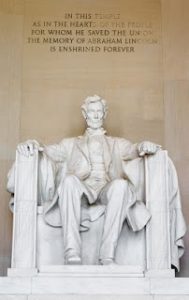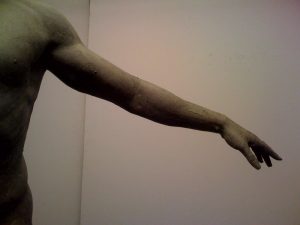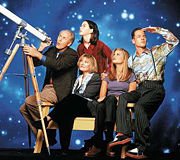Recent events in my life have led me to think deeply on the matter of forgiveness.
I’m not, in a broad sense, a fan of contemporary psychotherapy. It seems to me that the people who are in therapy the most are the ones who are most self-righteously entrenched in their own narcissism. Everything is about them and their process, and if you try to let some light into a closed and airless system by suggesting that not everything in the world is, in fact, about their process–well, it gets ugly. That’s one problem. There’s also, among some child therapists (many of whom, oddly enough, do not even have children of their own) a feeling that children are the unfettered kings of a home, no boundaries required. I think this is folly, and that it undercuts the very structure that serves to give kids a sense of safety and security, and a foundation in life-long values. Kids need structure. They also need a few lectures from mom and dad on topics like, “Don’t get drunk when you’re 14,” “shoplifting is bad,” and “just because all your friends are jumping off the Brooklyn Bridge doesn’t mean you should.”
Note that Proverbs 13:24 claims that “he who loves his children is careful to discipline them.” I know, sure, it’s hokey to quote the Bible in the face of the great amorality of contemporary psychotherapy–but when psychotherapy has endured as human truth for the many thousands of years that Proverbs has, then I’ll quote Melanie Klein and all that rot.
Recently a friend, after I ranted on in this vein, told me to read James Hillman. And I am drawn to Jung, so I’ll make a go of Hillman, when I finish at least two of the four books I’m currently reading. (Which are: The Diamond Cutter by Geshe Michael Roach, The Atlantis Code by Charles Brokaw, The 5 Rules of Thought by Mary T. Browne, and The Search for the Girl with the Blue Eyes by Jess Stearn.)
One of the biggest problems I have with contemporary psychotherapy is that it practices separating the doer from the action. Dr. Phil has espoused this on Oprah, and, with all due respect, this schism goes to the heart of why I view contemporary psychotherapy with prejudice. In fact, we define ourselves by our actions. If we tell lies, we’re a liar. If we cheat, we’re cheaters.
At the same time, in this view of the world that holds people accountable for their actions, there has to be a mechanism for redemption. For returning to self-worth, in our eyes and the eyes of the community, after an error, a wrong, a crime has been committed.
And for absolute sure: we all screw up. Each and every single one of us. Perhaps there are a few saintly monks meditating in caves who have never erred, and isn’t it easy to be a good person when you’re alone on a mountain in deep contemplation? But, for all the rest of us, we are going to hurt people, we are going to make mistakes, we are going to lie and cheat and steal and rage and be lazy and be gluttonous and be jealous and take advantage and persecute and oppress. On purpose and by accident. In the collective sense, and in the personal sense.
I’m reminded of the Passover Seder and how we are supposed to say, “It is because of what God did for me in taking me out of slavery,” and I am reminded of the group confessions during the prayers of Yom Kippur: “for the sin we have sinned before you forcibly or willingly….” I am reminded of Jesus saying, “Let he who is perfect cast the first stone” and “why do you behold the mote in your brother’s eye, but consider not the beam that is in your own?”
So we all make egregious mistakes. Some of those mistakes are cruel and hurt other people profoundly. How is redemption found in those cases? Well, best I’ve been able to figure out, with the help of finer minds than mine, is that we take personal responsibility for our own actions. This looks like: 1, acknowledging the guilt, 2, expressing remorse, and 3, offering to make restitution. Concrete action toward remorse and restitution are key. Someone who has committed a grievous wrong who acts in this way, following these three steps with persistence and humility, ought to get a second chance.
At least, that’s what I am thinking now. This current thinking is subject to evolution, as I journey through my life. It’s a complicated, troublesome subject. I want to be someone who chooses forgiveness and who receives forgiveness. This is so despite my knowing that there are some things I don’t know if I could ever, or will ever, forgive. I also know there are mistakes I’ve made for which I am not able to make restitution, for one reason or another, though I wish I could.
Which brings me back to the essential conundrums of human life: this vale of tears. And the Buddha’s observation that “Hatred does not cease through hatred but through love alone they cease.”
So, here is my prayer: May all conscious beings be released from their suffering. And may I be an instrument of the Lord’s peace, giving and receiving forgiveness.







